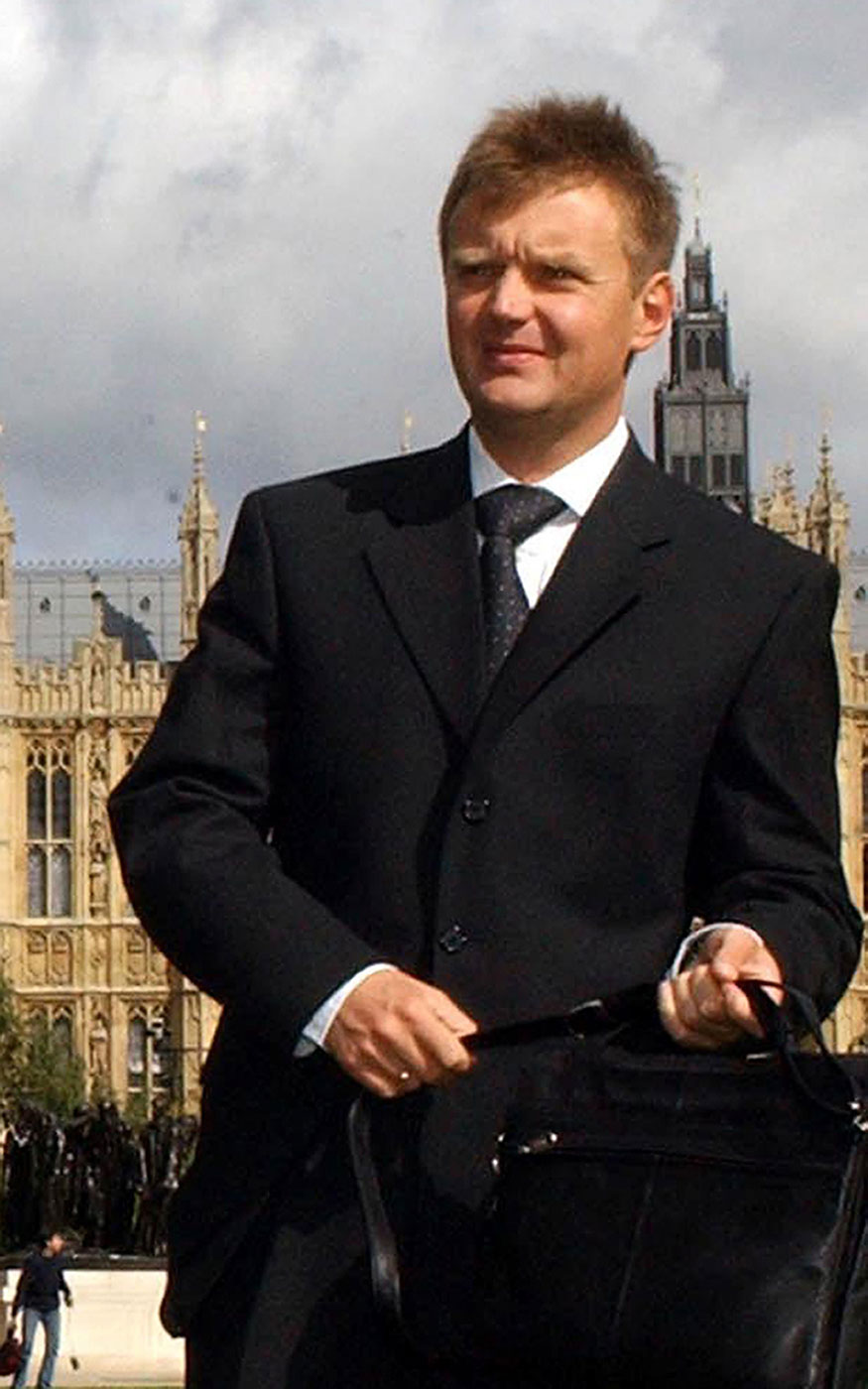
It took Alexander Litvinenko 23 painful days to die. It has taken another agonizing 2,987 days for the British government to open a public inquiry into his murder, a process that cannot deliver justice to the victim, his widow Marina or son Anatoly, but may at least provide an official account of events leading up to his death. As he lay dying after ingesting radioactive polonium-210, Litvinenko blamed the Kremlin. The Kremlin rejected blame. Britain for eight years dragged its heels, reluctant to push for answers that might complicate its relations with Russia.
Yet the evidence expected to unfold at the High Court in London over the next 10 weeks is likely to reveal not only an intricate web of relationships between spies and diplomats, Kremlin loyalists and dissidents, but also a startlingly simple truth. Russia, in the era of Vladimir Putin, has rarely proven susceptible to diplomacy.
That realization may finally have helped to sway Britain’s Home Secretary Theresa May from her 2013 refusal to hold a public inquiry. An inquest into Litvinenko’s death had already been abandoned apparently for fear of causing a breach with Moscow. In a letter explaining her decision to block the inquiry the coroner had recommended in its place, May cited concerns over the potential impact on “international relations.” Last summer, however, May revealed a change of heart. Her announcement of a public inquiry came less than a week after the shooting down of Malaysia Airlines Flight MH17 over eastern Ukraine, an act Ukraine (and much of the rest of the world) attributed to pro-Russian separatists. Russia accused Ukraine. Whitehall sources told the BBC that the timing of the May’s announcement was “a coincidence.” That may be true, but Britain has substantially toughened its stance toward Russia since then, as have other Western countries including the U.S. where on Monday an alleged Russian spy was arrested in New York.
Litvinenko’s strange tale speaks to a world in which the public handshakes between country leaders count for little. In 1998 he broke ranks with his then employer, Russia’s spy service the FSB, alleging a state-sanctioned plot to assassinate the Kremlin-insider-turned-critic Boris Berezovsky (whose eventual death, last March, raised questions, attracting an open verdict). Litvinenko sought asylum in the U.K. in 2000 and forged close links with Berezovsky and other figures unpopular with the Kremlin, including the investigative journalist, Anna Politkovskaya, slain just weeks before Litvinenko. But he also retained friendships with some of his former colleagues and during a meeting at a London hotel with two such men, Andrei Lugovoi and Dmitry Kovtun, allegedly drank tea spiked with polonium-210. Britain’s Crown Prosecution Service named the pair as suspects in the killing, respectively in 2007 and 2012. Both men deny involvement and Russia has continued to refuse their extradition.
The polonium apparently left traces that enabled the Metropolitan Police to trace its progress around London. On the first morning of the public inquiry, Robin Tam QC, counsel to the inquiry, revealed that there may have been an earlier attempt to poison Litvinenko in October 2006 that failed. The inquiry will seek to reveal many other hitherto invisible trails and connections but key parts of the evidence will also be heard in secret. Britain may be more willing to risk Kremlin anger than it used to be, but details of Litvinenko’s later work as an informant to the British foreign intelligence service MI6 will not be publicly aired, and other matters deemed diplomatically sensitive will also be considered in private.
Despite these strictures, Litvinenko’s widow Marina, who campaigned for the inquiry, told broadcaster Sky News that she hopes the process will lead to the truth. The inquiry will weigh alternative theories: might Litvinenko have died at the hand of agencies other than the Russian state, such as organized criminals, Chechen separatists, Berezovsky’s associates, the British secret services or even by his own hand? Ben Emmerson, the counsel representing Marina Litvinenko, gave an opening speech to the inquiry forcefully rejecting these scenarios. “The startling truth, which is going to be revealed in public by the evidence in this inquiry,” he said, “is that a significant part of Russian organized crime is organized directly from the offices of the Kremlin. Vladimir Putin’s Russia is a mafia state.” Marina Litvinenko told Sky News a key part of the truth is already clear: “I know my husband was killed, I saw how it happened. It was a torture. He died a long 23 days in front of me, in front of his son, in front of his friends.”
More Must-Reads from TIME
- How Donald Trump Won
- The Best Inventions of 2024
- Why Sleep Is the Key to Living Longer
- How to Break 8 Toxic Communication Habits
- Nicola Coughlan Bet on Herself—And Won
- What It’s Like to Have Long COVID As a Kid
- 22 Essential Works of Indigenous Cinema
- Meet TIME's Newest Class of Next Generation Leaders
Contact us at letters@time.com